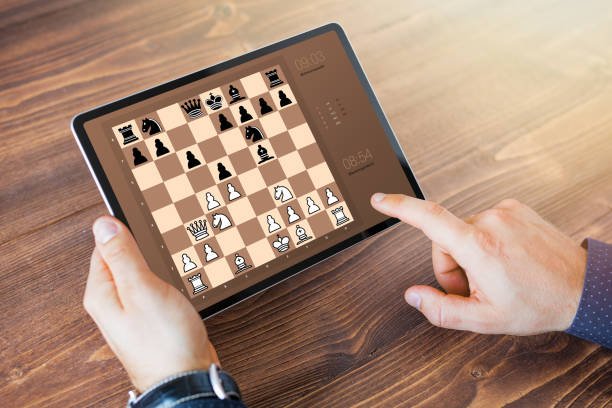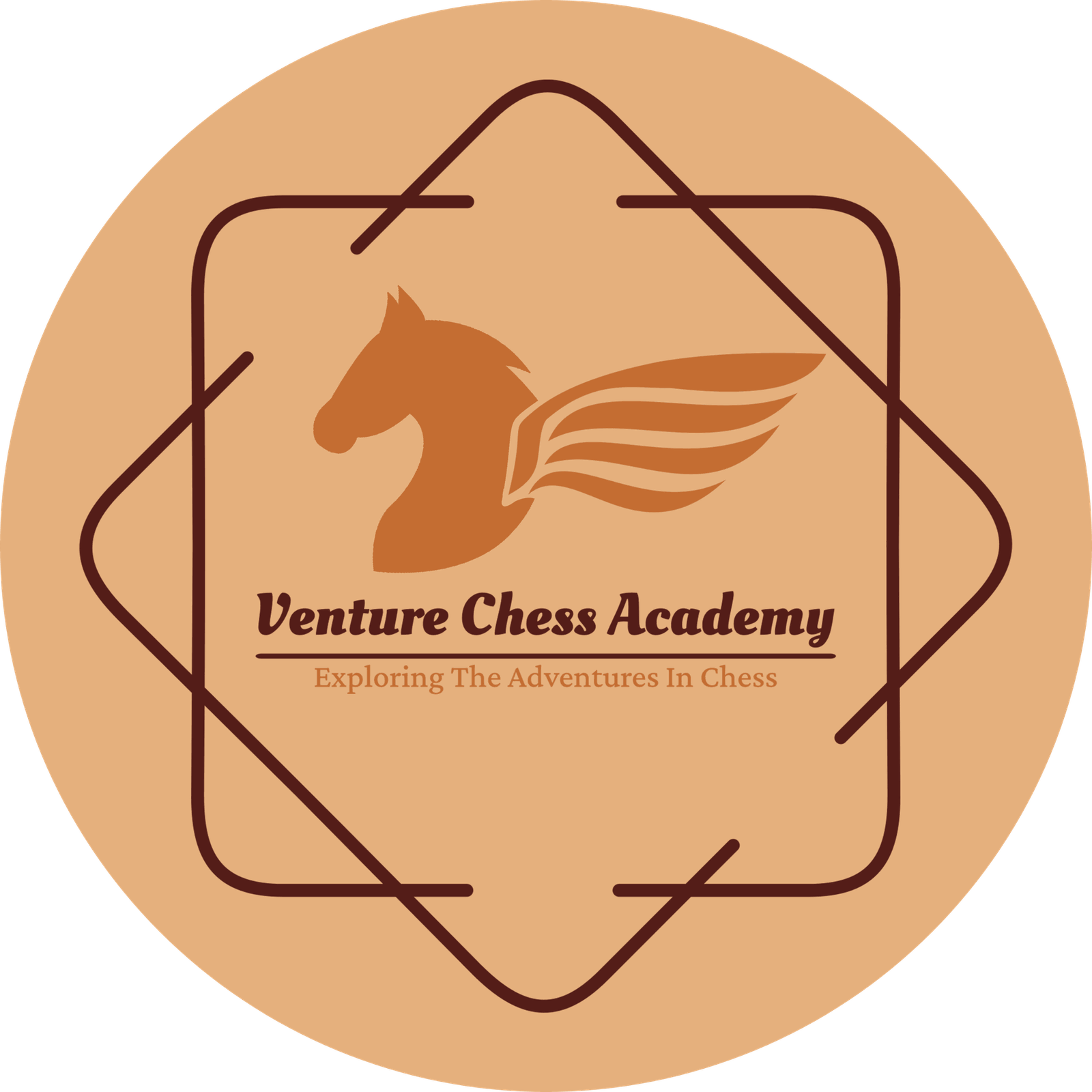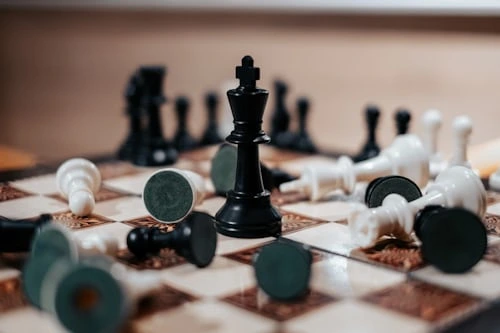
Chess has been an enduring game of strategy and intellect for centuries. From the quiet, wood-paneled halls of traditional chess clubs to the vibrant, digital arenas of online platforms, chess has evolved, offering players new ways to learn, play, and compete. But with these changes comes a common debate: online chess vs board chess. Which one is better for learning, skill improvement, and overall experience? Let’s explore the differences, advantages, and drawbacks of both formats to help you make an informed choice.
Understanding Online Chess and Board Chess
Board chess, often referred to as traditional or offline chess, is the classic form of the game. It involves a physical chessboard, pieces, and a face-to-face opponent. This form has been around for centuries and offers a tactile, immersive experience that many players cherish.
Online chess, on the other hand, allows players to compete virtually on digital platforms. Websites and apps like Chess.com, Lichess, and Playchess have made it easier than ever to play anytime, anywhere. Online chess provides features like instant matchmaking, analysis tools, and interactive tutorials, making it a popular choice, especially for beginners and tech-savvy players.j3
Key Differences Between Online Chess and Board Chess
Aspect | Online Chess | Board Chess |
Accessibility | Play anytime with players worldwide | Requires a physical board and opponent |
Learning Tools | Tactics trainers, puzzles, move analysis, tutorials | Limited to books, coaches, and club sessions |
Time Control | Multiple options (blitz, bullet, classical) | Usually classical or agreed timing |
Social Interaction | Chat features, forums, tournaments | Face-to-face interactions, club community |
Game Recording | Automatic game history and stats | Manual recording needed |
Cheating Risk | Higher risk without strict measures | Less risk due to physical presence |
Benefits of Playing Online Chess
Online chess offers a range of advantages, making it a favorite for beginners and experienced players alike. Some of the key benefits of playing online chess include:
- Convenience and Accessibility: You can play anytime, anywhere, even on your phone or tablet. No need to schedule matches or travel to a chess club.
- Variety of Opponents: Online platforms connect you with players worldwide, providing exposure to different strategies and playstyles.
- Learning Tools: Platforms offer tutorials, puzzles, and post-game analysis, which help improve tactics and strategy faster.
- Time Flexibility: You can play rapid, blitz, or even bullet games, adapting the game to your available time.
- Community and Tournaments: Online tournaments and forums allow interaction with a global chess community.
With these advantages, it’s no wonder many beginners ask, “is online chess better than board chess for beginners?” While online chess accelerates learning, it also comes with some challenges that board chess avoids.

Advantages of Board Chess (Offline Chess Benefits)
Despite the rise of online platforms, traditional chess still holds a special place. Offline chess benefits include:
- Improved Focus and Patience: Playing face-to-face minimizes distractions, helping players concentrate deeply on the game.
- Physical Tactile Experience: Handling the pieces provides a sensory connection to the game that digital versions can’t replicate.
- Better for Psychological Skills: Reading an opponent’s body language, bluffing, and psychological tactics are easier in person.
- Social Interaction: Chess clubs and tournaments foster friendships and community bonds.
- Fewer Distractions: Unlike online chess, board chess is free from notifications, ads, or potential online cheating.
Online Chess vs Traditional Chess: Pros and Cons
When weighing online chess vs traditional chess, it’s important to consider the pros and cons of each:
Online Chess Pros:
- Instant access to opponents worldwide
- Learning tools and game analysis
- Flexible timing and casual play options
- Convenience and no travel required
Online Chess Cons:
- Less tactile experience
- Limited face-to-face social interaction
- Risk of cheating or unfair play
- Can be overly fast-paced (e.g., blitz, bullet games)
Board Chess Pros:
- Enhanced focus and discipline
- Stronger social connection and psychology practice
- Tactile and immersive experience
- Minimal cheating risk
Board Chess Cons:
- Requires physical setup and travel
- Limited opponent pool compared to online
- Fewer learning tools instantly available
Board Chess Strategies vs Online Chess Tactics
Both online and board chess require strategic thinking, but the approach can differ.
- Board Chess Strategies: Focus on deep planning, long-term tactics, and psychological play. Players often have more time to ponder moves in traditional matches.
Online Chess Tactics: Online games often favor fast, tactical decisions. Features like engine analysis and tactics trainers allow players to sharpen tactical skills quickly, sometimes at the expense of deeper strategic understanding.
Free Demo Class for Kids
Let your child explore 60-minute free interactive session with FIDE Rated coaches.
Enroll HereOnline Chess Platforms: Expanding the Game
Online chess platforms have revolutionized the game. Platforms like Chess.com, Lichess, and Internet Chess Club offer:
- Real-time matches with global players
- Post-game analysis and feedback
- Puzzles and training exercises
- Online tournaments with rankings
- Video lessons from top players
These platforms are a key reason why online chess vs board chess for improving skills often favors online for beginners, as instant feedback accelerates learning.
How Online Chess Differs from Traditional Board Chess
The differences go beyond physical setup:
- Speed of Play: Online chess often favors rapid games, while traditional chess encourages deeper thinking.
- Game Recording and Analysis: Online chess automatically records games, provides statistics, and identifies mistakes.
- Global Competition: Online players face opponents from all over the world, unlike local offline games.
- Learning Resources: Interactive tutorials and AI analysis are exclusive to online platforms.
Despite these differences, the online vs offline chess experience depends on personal preference. Some players thrive online, while others value the tactile, focused environment of board chess.

Benefits of Playing Chess Online vs on a Physical Board
Ultimately, both formats have unique advantages. Here’s a direct comparison:
- Skill Improvement: Online chess allows faster practice with tools and analysis.
- Social Interaction: Board chess builds face-to-face connections.
- Accessibility: Online chess wins for convenience and variety.
- Psychological Development: Offline chess helps with reading opponents and mental discipline.
- Enjoyment: Many players find the tactile aspect of board chess more satisfying, while online players enjoy global competition and instant results.
Choosing the Right Format for You
If you are a beginner asking “is online chess better than board chess for beginners?”, the answer depends on your goals:
- For Rapid Learning: Online chess is highly beneficial due to tutorials, puzzles, and frequent play.
- For Deep Strategic Understanding: Board chess provides a more immersive experience for studying strategy and psychological play.
- For Social and Competitive Interaction: Board chess clubs and tournaments offer a sense of community that online platforms cannot fully replicate.
- For Convenience: Online chess allows you to play anytime, anywhere, which is ideal for busy schedules.
Many chess enthusiasts use a hybrid approach, playing online to practice frequently and offline to experience in-depth games and social interaction.
Conclusion
The debate of online chess vs board chess doesn’t have a one-size-fits-all answer. Online chess excels in accessibility, learning, and tactical practice, making it ideal for beginners and players with busy schedules. Board chess, however, offers a rich, immersive, and social experience, helping players develop deep strategic skills and psychological insight.
For most players, a combination of both formats provides the best of both worlds: online chess for rapid practice and skill building, and board chess for immersive gameplay and social interaction.
Whether you’re drawn to the tactile pleasure of moving physical pieces or the convenience and resources of digital platforms, chess remains a timeless game that challenges the mind, hones strategy, and connects players across the globe.
Free Demo Class for Kids
Let your child explore 60-minute free interactive session with FIDE Rated coaches.
Enroll HereFAQs
Online chess offers instant practice, tutorials, and analysis, which are excellent for beginners. However, board chess helps beginners develop focus, patience, and psychological skills. A combination of both is often ideal.
Key benefits include accessibility, instant analysis, global competition, diverse time controls, and interactive tutorials.
Online chess is digital, faster-paced, and includes features like engine analysis and online tournaments. Board chess emphasizes face-to-face interaction, tactile experience, and psychological strategy.
Offline chess helps with deep strategic thinking, focus, and reading opponents. For tactical skills and frequent practice, online chess is more advantageous.
Pros of online chess include convenience, learning tools, and access to global players. Cons include less tactile experience and higher risk of cheating. Board chess offers deep focus, social interaction, and a tactile experience but requires physical setup and fewer opponents.
Also Read
- admin2
- Blog
- December 12, 2025
- Comments Off on French Defense
French Defense
- admin2
- Blog
- December 7, 2025
- Comments Off on Sicilian Defense
Sicilian Defense
- admin2
- Blog
- November 28, 2025
- Comments Off on Difference between Stalemate and Checkmate
Difference between Stalemate and Checkmate
- admin2
- Blog
- November 20, 2025
- Comments Off on Ruy Lopez Opening
Ruy Lopez Opening
- admin2
- Blog
- November 14, 2025
- Comments Off on Fool’s Mate
Fool’s Mate
- admin2
- Blog
- November 8, 2025
- Comments Off on Scholar mate
Scholar mate
- admin2
- Blog
- October 22, 2025
- Comments Off on What is a Stalemate ?
What is a Stalemate ?
- admin2
- Blog
- October 14, 2025
- Comments Off on Can a King Checkmate a King ?
Can a King Checkmate a King ?
- admin2
- Blog
- October 7, 2025
- Comments Off on Best Opening For Black
Best Opening For Black
- admin2
- Blog
- October 4, 2025
- Comments Off on How to checkmate with queen and king
How to checkmate with queen and king
- admin2
- Blog
- September 26, 2025
- Comments Off on Online Chess vs Board Chess
Online Chess vs Board Chess
- admin2
- Blog
- September 24, 2025
- Comments Off on How to Checkmate in 4 Moves
How to Checkmate in 4 Moves
- admin2
- Blog
- September 18, 2025
- Comments Off on Benefits of Playing Chess
Benefits of Playing Chess
- admin2
- Blog
- September 8, 2025
- Comments Off on Best Chess Coaching in india
Best Chess Coaching in india
- admin2
- Blog
- August 25, 2025
- Comments Off on Rapid chess vs blitz chess
Rapid chess vs blitz chess
- admin2
- Blog
- August 21, 2025
- Comments Off on Rapid Chess vs Classic Chess
Rapid Chess vs Classic Chess
- admin2
- Blog
- August 12, 2025
- Comments Off on 7 Brain Boosting Benefits Of Chess
7 Brain Boosting Benefits Of Chess
- admin2
- Blog
- August 4, 2025
- Comments Off on Top 10 Chess Openings for Beginners
Top 10 Chess Openings for Beginners
- admin2
- Blog
- July 11, 2025
- Comments Off on Top 10 Reasons Kids Should Learn Chess
Top 10 Reasons Kids Should Learn Chess
- admin2
- Blog
- July 10, 2025
- Comments Off on Inspirational Story Of Indian Chess Grandmaster Gukesh Dommaraju
Inspirational Story Of Indian Chess Grandmaster Gukesh Dommaraju
- admin2
- Blog, Chess Tips
- July 8, 2025
- Comments Off on 7 Brain Benefits Of Playing Chess
7 Brain Benefits Of Playing Chess
- admin2
- Blog, Our blog
- May 13, 2025
- Comments Off on
- admin2
- Blog
- May 7, 2025
- Comments Off on Patterns in Chess
Patterns in Chess
- admin2
- Blog
- May 7, 2025
- Comments Off on Why Venture Chess Academy ?
Why Venture Chess Academy ?
Free Demo Class for Kids
Let your child explore 60-minute free interactive session with FIDE Rated coaches.
Enroll HereFree Demo Class for Kids
Let your child explore 60-minute free interactive session with FIDE Rated coaches.
Enroll HereFree Demo Class for Kids
Let your child explore 60-minute free interactive session with FIDE Rated coaches.
Enroll Here





















